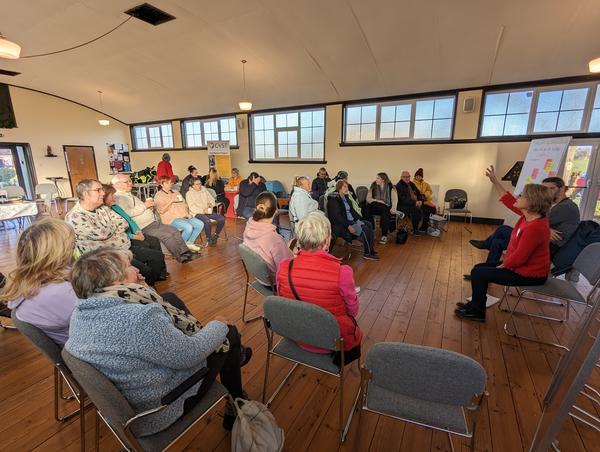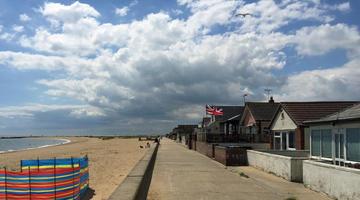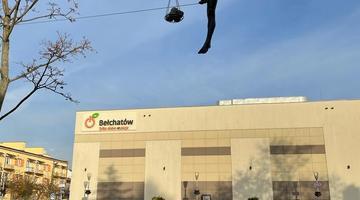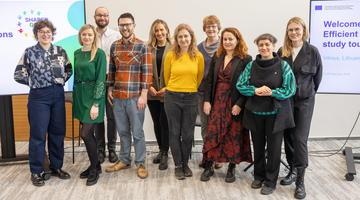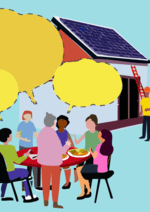New Report: Community interventions can help power the clean energy transition
What if clean energy isn’t just a technical challenge—but a social one? A new report from the European SHARED GREEN DEAL project makes a compelling case that conversations, relationships, and imagination have the potential to support the more tangible deployment of solar panels, wind turbines and other clean energy installations across Europe.
The report, Community Visioning for Just, Clean Energy Futures in Europe, draws on a year-long series of experiments in four very different places: a coal region in Poland, rural towns in southern Spain, a coastal community in the UK, and a renewable energy island in Denmark. In each community, the work sought to bring together citizens, policymakers, businesses, and NGOs to imagine their ideal energy future—and to discuss what it would take to get there.
The method is called community visioning, and it’s as much about listening as it is about planning. In practice, all the experiments brought together diverse groups—from residents and local officials to businesses and NGOs—to imagine desirable energy futures grounded in local needs. Each process used creative facilitation, encouraged dialogue across sectors, and focused on what mattered to people in their everyday lives: comfort, control, cost, community.
The approach resonated strongly with participants, as revealed through more than 30 local interviews.
“The topic... gave us opportunities to talk about... the granular stuff that really matters around actually thinking about the subject in a much wider scale rather than it just being about fitting solar panels or doing the technical stuff. It was much more about people’s lives and experiences and what that looks like for a community and how they can become sustainable,” as one participant from Jaywick, Essex, noted in a later interview.
In general, the shift—from top-down plans to community-rooted visions—had tangible results, including strengthening existing energy communities and laying the groundwork for new ones (Granada), resulting in the launch of a community-based energy hub (Jaywick), and demonstrating the importance of non-governmental organisations and women in the transition away from the coal industry (Bełchatów).
As one participant from Spain’s Granada province expressed it, when addressing the benefit of community visioning when seeking to establish energy communities:
“If we ever want to have energy communities, it must start with these types of workshops where all the facets and all the parts of the energy issue are shared. Individually or within a single sector, we will surely not get there. Either we go together, or we don’t get there.”
The report was written by researchers from University of Galway, Anglia Ruskin University and Bankwatch, and is available on the SHARED GREEN DEAL website.
Related Green Deal Priorities
Related localities
Related events
Related Resources


CONTACT
For further details please contact co-leads Professor Chris Foulds (chris.foulds@aru.ac.uk) and Professor Rosie Robison (rosie.robison@aru.ac.uk).

This project has received funding from the European Union’s Horizon 2020 research and innovation program under grant agreement No 101036640. The sole responsibility for the content of this website lies with the SHARED GREEN DEAL HAS project and does not necessarily reflect the opinion of the European Union.
